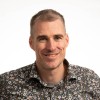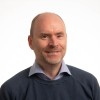SHIFT-PLASTICS
SHIFT-PLASTICS will create sustainable circular value chains for handling plastics in the fisheries and aquaculture sector. Plastic pollution has serious impacts on our natural environment especially an impact connected to the formation of micro- and nanoplastics. We will solve the most problematic issues that the industries have regarding handling of plastics which is associated with complex material compositions (e.g., copper-impregnated nets and combinations of plastics and steel core ropes).
Seven research institutions are involved, which have expertise in technology, policy, and circular value chains, and as many as 20 other actors - equipment manufacturers, industrial partners, the recycling industry, public partners, and interest groups take part in the project. One key pilar with the project is that scientist will investigate how one can technologically solve challenges with problematic plastic gear equipment, currently used in fisheries and aquaculture sector, with better and more optimal recycling solutions, and by use of new materials such as bioplastics.
The scientists will also investigate how policy and incentives should be directed towards more benign designs that increase sustainability, product length, reuse, and recycling. Where the aim is to find policies and regulations should prevent the product from being discarded for energy recovery and depositing. Scientists will cooperate closely with equipment producers, industrial partners, the recycling industry, public partners and third sector partners to create sustainable circular economy value chains for handling plastics in the fisheries and aquaculture sector.

